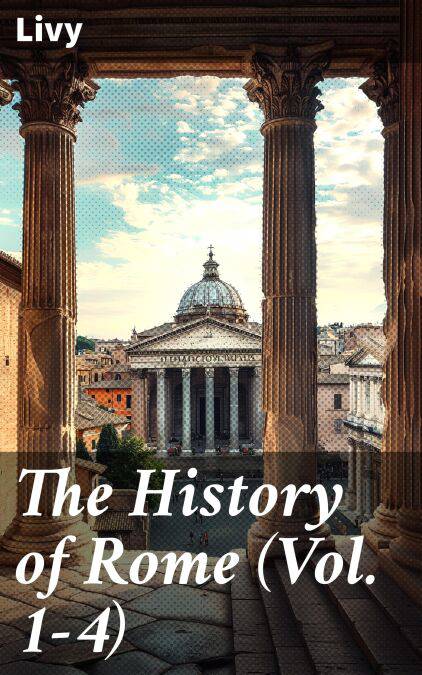
- Afhalen na 1 uur in een winkel met voorraad
- Gratis thuislevering in België vanaf € 30
- Ruim aanbod met 7 miljoen producten
- Afhalen na 1 uur in een winkel met voorraad
- Gratis thuislevering in België vanaf € 30
- Ruim aanbod met 7 miljoen producten
Zoeken
The History of Rome (Vol. 1-4) E-BOOK
Epic Chronicle of Rome's Rise and Fall in Ancient Times
Livy
E-book | Engels
€ 1,99
+ 1 punten
Uitvoering
Omschrijving
In "The History of Rome (Vol. 1-4)", Livy offers a comprehensive and engaging narrative chronicling the foundation and early development of Rome, from its mythical roots to the onset of the Second Punic War. Livy's literary style is characterized by its eloquence and rhetorical flourish, blending historical recounting with moral reflection. As a prominent figure in the Latin prose tradition, Livy presents his work as a source of ethical lessons, intertwining the grandeur of Rome's past with a deep analysis of its virtues and vices, illustrating a nuanced understanding of human nature and governance within the broader context of Roman society. Titus Livius, known simply as Livy, was a Roman historian born in 59 BCE, whose life spanned the tumultuous transition from the Roman Republic to the Empire. His historical vision was shaped by the socio-political upheavals of his time, including civil strife and moral decay, leading him to emphasize the importance of Rome's heroic past as a guide for contemporary challenges. Livy's rich background and education fostered a passion for history, compelling him to document Rome's legacy in a manner that resonates with both the intellect and the spirit. "The History of Rome" is a crucial read for anyone interested in the complexities of ancient civilization and its enduring impact on modern societies. Livy's profound insights and narrative mastery offer readers a vivid portrayal of Rome's ascent, making this work not merely a historical record but a timeless reflection on the human condition. For scholars, students, and lovers of history alike, Livy's masterpiece is an essential addition to the study of Western narrative tradition.
Specificaties
Betrokkenen
- Auteur(s):
- Uitgeverij:
Inhoud
- Aantal bladzijden:
- 1920
- Taal:
- Engels
Eigenschappen
- Productcode (EAN):
- 8596547669487
- Verschijningsdatum:
- 16/11/2023
- Uitvoering:
- E-book
- Beveiligd met:
- Digital watermarking
- Formaat:
- ePub

Alleen bij Standaard Boekhandel
+ 1 punten op je klantenkaart van Standaard Boekhandel
Beoordelingen
We publiceren alleen reviews die voldoen aan de voorwaarden voor reviews. Bekijk onze voorwaarden voor reviews.











